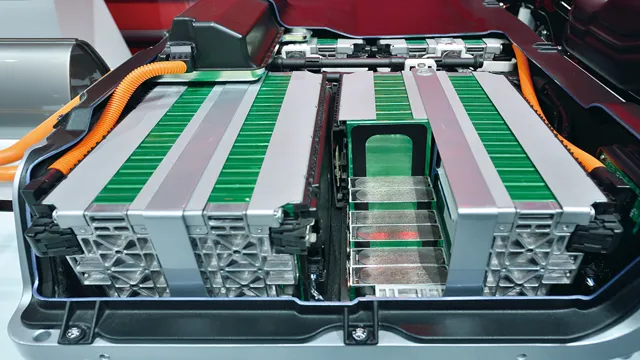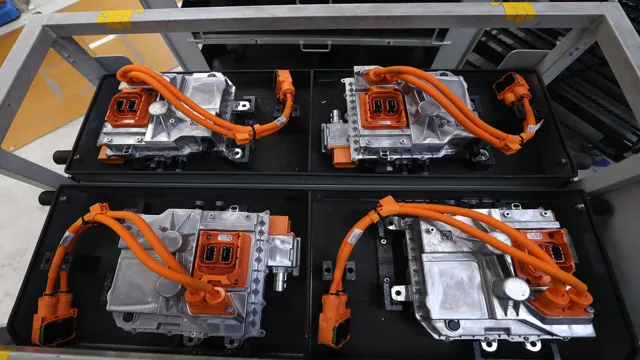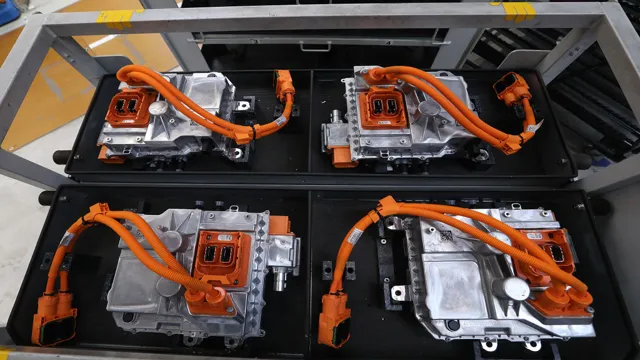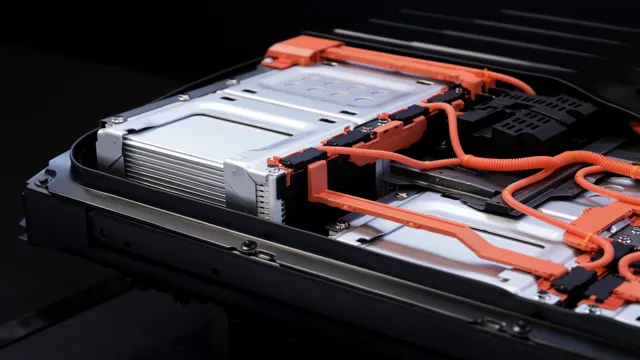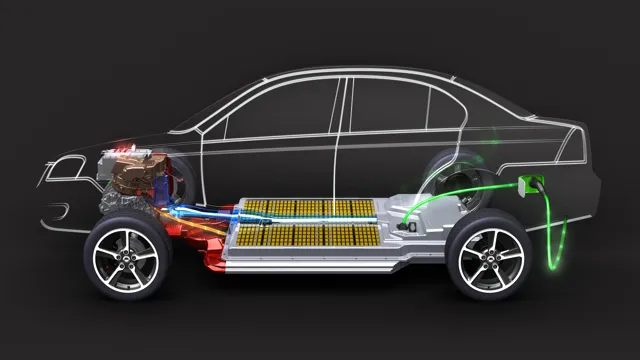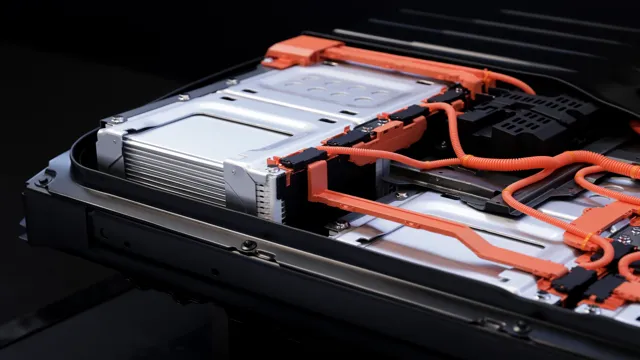The Shocking Truth Revealed: What’s the Real Average Cost of an Electric Car Battery?
Sustainable energy is the future – there’s no question about it. The question that remains is how much we’re willing to spend to achieve a future where renewable energy is the norm. In the world of electric cars, one of the biggest costs comes from the batteries that power them.
While electric cars may be cleaner and cheaper to run day to day than their gas-guzzling counterparts, the cost of these lithium-ion batteries is currently prohibitive for many. So, what is the cost of electric car batteries, and how does this affect the electric vehicle industry as a whole? In this article, we’ll dive into the details of this issue, exploring the costs of electric car batteries and the implications they have for us all.
Understanding Electric Car Batteries
When considering buying an electric car, one of the most common questions is, “What’s the average cost of an electric car battery?” Well, the answer depends on the type of battery and the car model you choose. Generally, electric car battery prices range from $5,500 to $16,000. In some cases, the cost of the battery can represent about one-third of the total car price.
But don’t worry, over time, the cost of electric car batteries is falling. This is due to advancements in technology, improvements in battery production, and an increase in electric car sales. Additionally, some electric car manufacturers offer battery leasing and warranty programs, which can help lower the upfront cost of the battery.
Overall, while the cost of an electric car battery may seem high at first glance, there are options available to make it more affordable. And the long-term cost savings of using an electric car make it worth considering.
What is an electric car battery?
An electric car battery is the heart of an electric vehicle. It’s what powers the car’s electric motor and provides the energy needed to propel the vehicle down the road. The battery pack consists of thousands of small cells that work together to store and release energy.
Most electric car batteries are made up of lithium-ion cells, which are known for their high energy density, long lifespan, and low self-discharge rate. These cells are arranged in either a series or parallel configuration to create the required voltage and capacity needed to power the vehicle. Electric car batteries can be charged by plugging them into an electric outlet, or by using fast charging stations that provide a quick burst of energy.
Understanding the capabilities of an electric vehicle battery is important for getting the most out of your electric car. With proper care and maintenance, electric car batteries can last for many years and provide reliable and efficient transportation.
How does an electric car battery work?
Electric Car Batteries Electric car batteries are the heart and soul of an electric vehicle. They store the electrical energy that powers the motor and provide the vehicle with the energy necessary to drive. But how do these batteries work? Electric car batteries use a series of chemical reactions to produce and store electricity.
Each battery cell contains electrodes that are made of different materials. When an electric charge is introduced, the electrodes react with the electrolyte, generating electricity. This electricity flows from the battery through a series of wires and circuits, ultimately reaching the motor and powering the car.
The amount of energy stored in an electric car battery depends on its capacity, measured in kilowatt-hours (kWh). The more kilowatt-hours a battery has, the longer the car can travel between charges. With advances in battery technology, electric cars are becoming more efficient and practical, offering drivers an eco-friendly alternative to traditional gasoline-powered vehicles.
Cost Factors of Electric Car Batteries
If you’re considering switching to an electric vehicle, it’s important to understand the cost factors associated with electric car batteries. The average cost of an electric car battery can vary widely depending on factors like the type of car you drive, the size of the battery, and the manufacturer. Generally, the cost of an electric car battery accounts for a significant percentage of the overall price of the vehicle.
However, experts predict that as battery technology improves and production scales up, the cost of electric car batteries is likely to decrease in the coming years. In 2020, the cost of a typical electric car battery was around $137 per kilowatt-hour, a decrease of 89% since 20 This decrease has made electric vehicles more affordable for many consumers.
Nevertheless, it’s important to remember that battery costs are just one factor to consider when making the switch to an electric car. Researching incentives, tax breaks, and charging options is also crucial to making an informed decision.
Battery size and capacity
When it comes to electric cars, one of the most important components is the battery. The size and capacity of the battery can significantly impact the performance and range of the vehicle, as well as the cost of the car. Electric car batteries are made up of individual cells, and the more cells a battery has, the higher its capacity will be.
However, with increased capacity comes increased cost. The cost of an electric car battery is directly related to the amount of raw materials needed to produce it, such as lithium and cobalt. These materials can fluctuate in price, leading to variations in the cost of batteries.
As technology advances and economies of scale are achieved, the cost of electric car batteries is expected to decrease, making them more accessible to consumers. Ultimately, the size and capacity of electric car batteries are essential factors to consider when purchasing an electric vehicle, as they not only impact the price of the car but also its overall performance.
Battery chemistry and type
When it comes to electric car batteries, the cost can vary depending on battery chemistry and type. The most common types of batteries used in electric cars include lithium-ion and nickel-metal hydride. Lithium-ion batteries are currently the most popular due to their high energy density, which allows for longer driving range and faster charging times.
However, they are also more expensive than nickel-metal hydride batteries. Additionally, the type of lithium-ion battery can impact the cost as well, with prismatic and pouch cells typically being cheaper than cylindrical cells. Ultimately, the cost of an electric car battery will depend on various factors such as the size, chemistry, and manufacturer.
It’s important to consider these factors when purchasing an electric car to ensure the best value for your investment.
Manufacturer and brand
When it comes to electric car batteries, there are many factors that determine their cost. One such factor is the manufacturer and brand of the battery. Different manufacturers use different materials and technologies to produce their batteries, which can have a significant impact on the final cost.
For example, some manufacturers may use cheaper materials that reduce the overall cost of the battery, but also result in lower performance and shorter lifespan. On the other hand, higher-end manufacturers may use more expensive materials that increase the cost, but also provide superior performance and longer lifespan. Ultimately, the choice of manufacturer and brand will depend on individual preferences and needs, with some prioritizing performance over cost, while others may opt for a more budget-friendly option.
However, it’s important to remember that higher cost doesn’t always equate to better performance, and that thorough research and consideration must be taken before making a decision.
Average Cost of Electric Car Batteries
When it comes to the average cost of an electric car battery, it can vary depending on the brand and capacity. On average, a battery pack for an electric vehicle can cost anywhere from $5,000 to $15,000. However, the cost is expected to continue decreasing as technology advances and electric vehicles become more common.
Additionally, some electric car manufacturers offer warranties and incentives for battery replacement, which can bring the cost down even further. It’s important to note that the cost of an electric car battery is a significant factor in the overall cost of an electric vehicle. However, it can also save you money in the long run by reducing the cost of fuel and maintenance.
Overall, while the initial investment may seem high, the benefits of driving an electric vehicle can outweigh the cost in the long run.
Current average cost per kilowatt-hour
The current average cost per kilowatt-hour of an electric car battery is an important factor to consider when making the decision to purchase an electric vehicle. As of 2021, the average cost is around $137 per kilowatt-hour, a significant decrease from previous years. This decline in price is due to technological advancements and increased demand for electric vehicles.
The cost of batteries is one of the largest expenses in the manufacturing of electric cars, but as prices continue to drop, owning an electric car becomes more accessible for consumers. This reduction in cost also translates to a longer lifespan for the vehicle’s battery, making electric cars a more cost-effective alternative to traditional gasoline-powered vehicles. As the market continues to expand, it is important to keep a watchful eye on the price of electric car batteries to ensure that we are making responsible and affordable decisions for a greener future.
Comparison of popular electric car battery models
When it comes to buying an electric car, one of the biggest concerns for consumers is the cost of the battery. The average cost of electric car batteries has been decreasing steadily over the years, thanks to advancements in technology and economies of scale. However, the price can still vary greatly depending on the manufacturer and model of the car.
For example, the Nissan Leaf’s battery pack is currently priced at around $5,500, while a Tesla Model S battery pack can cost upwards of $20,000. It’s important to note that these prices are for replacement batteries, as electric car batteries typically come with a warranty that covers any issues or replacement costs during that time. While the upfront cost of an electric car and its battery may seem high, the long-term cost savings of not having to pay for gas or regular maintenance can make it an attractive option for environmentally-conscious consumers.
Future of Electric Car Batteries
The future of electric car batteries is a hot topic these days, especially as the world moves towards cleaner, more sustainable energy sources. One of the biggest factors affecting the adoption of electric vehicles is the cost of the battery. Currently, the average cost of an electric car battery is around $10,000 to $15,000, which is a significant portion of the total cost of the vehicle.
However, many experts predict that this cost will continue to decline in the coming years as technology advances and economies of scale are realized. In fact, some predict that the cost of electric car batteries could drop to as low as $6,000 by 2025, making electric vehicles much more affordable and accessible to the average consumer. With lower costs and improved technology, it’s no wonder that electric vehicles are becoming more and more popular around the world.
Predicted cost trends
The future of electric car batteries is looking bright, with predicted cost trends showing a gradual decrease. This is primarily due to advancements in technology and the production of batteries at a larger scale, resulting in economies of scale. Lithium-ion batteries, which are currently the most popular type of battery used in electric cars, are expected to become even cheaper and more efficient.
As more companies invest in research and development, breakthroughs in solid-state batteries and other battery technologies may also become commercially available in the future. This means that electric cars will become more affordable and accessible to a wider range of consumers. A shift towards electric cars, as opposed to traditional gasoline-powered cars, will have a significant impact on the environment and result in cleaner air for all.
With the potential of driving long distances between charges and a lower cost of ownership, electric cars may become the norm in the near future.
Advancements in battery technology
Electric car batteries are rapidly evolving, and the future looks bright for the electric car industry. Today, we have witnessed significant advancements in battery technology, with battery packs becoming more powerful, lighter, and longer-lasting. The investment in research and development for electric car batteries has boosted their overall performance, and several companies have shown interest in developing next-gen batteries.
One such company is Tesla, which aims to create a battery that lasts 1 million miles. Solid-state batteries are also another promising technology that could revolutionize the electric car market. These batteries utilize solid electrolytes rather than liquid ones, making them more durable, safer, and more robust than traditional batteries.
However, one of the main challenges facing the electric car industry is the high cost of producing batteries. But with advancements in technology, we can look forward to more affordable and efficient batteries that can provide electric cars with longer ranges and faster charging times. The future of electric car batteries is bright, and we can expect to see more investments in the coming years, leading to increased power, efficiency, and better environmental sustainability.
Conclusion
As the world transitions towards a greener future, the average cost of an electric car battery has become a key factor in the adoption of these environmentally friendly vehicles. While the upfront cost may seem daunting, it’s important to consider the long-term savings and benefits that come with owning an electric car. Plus, with advancements in technology and increasing competition in the industry, we can expect to see a continued decrease in the average cost of electric car batteries.
So, while it may be a shock to the wallet initially, investing in an electric car ultimately pays off in more ways than one.”
FAQs
What is the average cost of an electric car battery?
The average cost of an electric car battery is around $5,500 to $7,000.
How much does it cost to replace an electric car battery?
The cost to replace an electric car battery can vary, but it is generally between $3,000 to $5,000.
What factors affect the cost of an electric car battery?
The cost of an electric car battery can be affected by factors such as the size of the battery, the type of electric car, and the supplier of the battery.
How long do electric car batteries last?
The lifespan of an electric car battery can vary, but it is typically around 8 to 10 years or around 100,000 miles, whichever comes first.
Can electric car batteries be recycled?
Yes, electric car batteries can be recycled. Recycling the batteries can help to reduce the environmental impact of the electric car industry.
